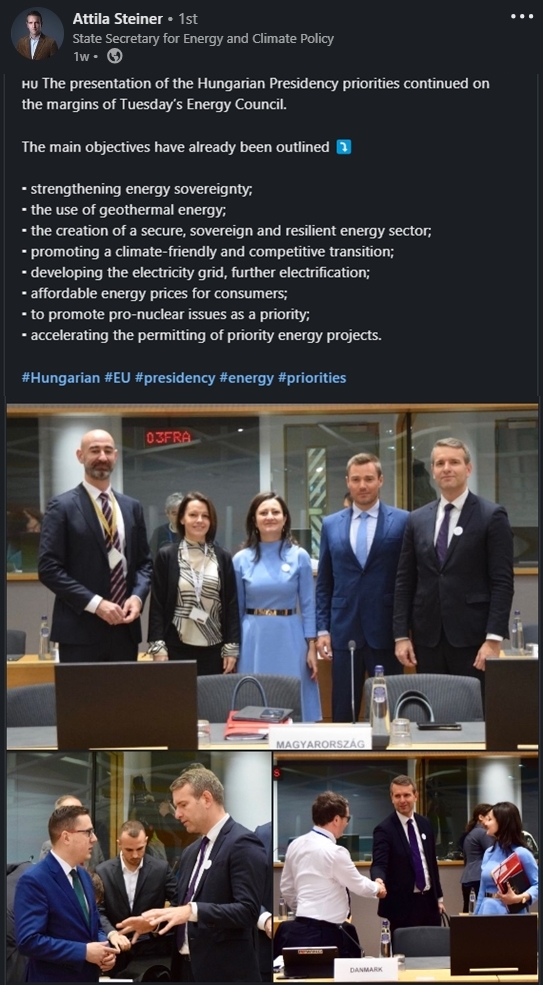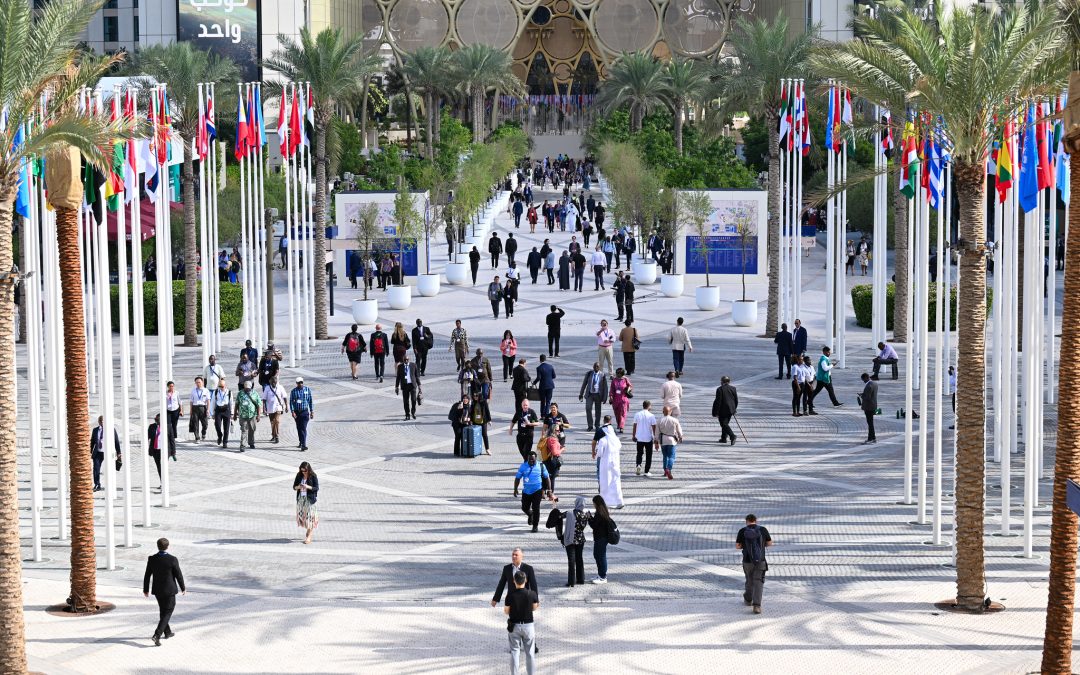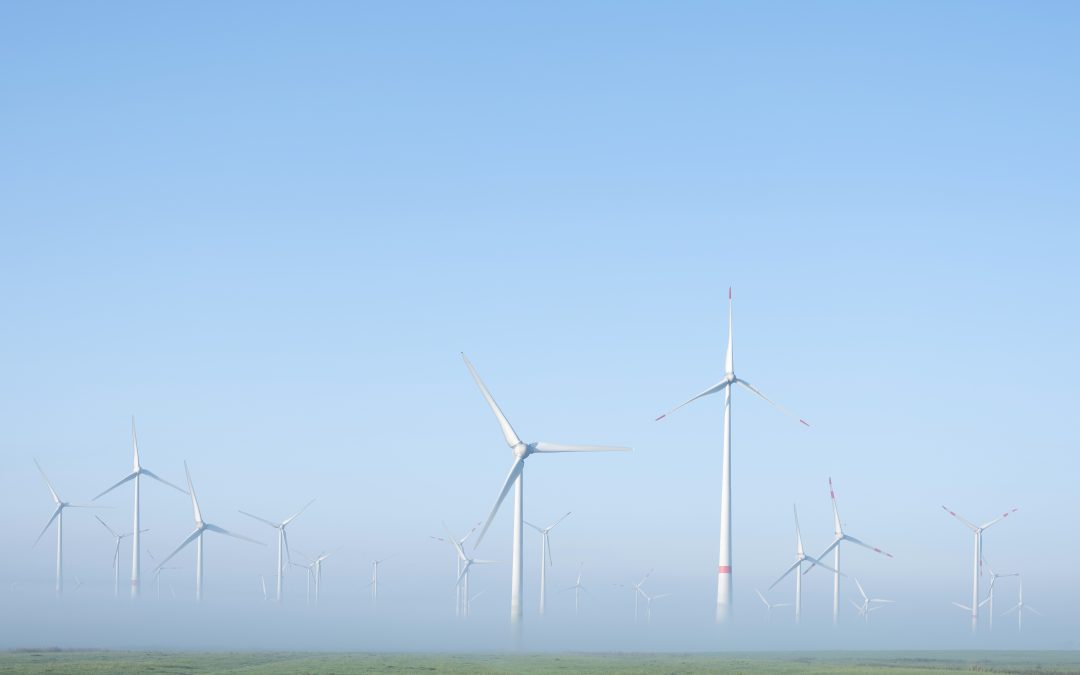With the beginning of January, Spain handed over the rotating presidency of the European Union to Belgium. It is now time to assess the main achievements of the previous presidency, examine the priorities set by Belgium, and look ahead to the expected challenges of the upcoming Hungarian presidency.
In our previous writings, we reviewed the program of the Spanish-Belgian-Hungarian presidency trio, whose first phase has now concluded with Spain passing on the EU rotating presidency to Belgium. The Spaniards, who held the 30th EU presidency, achieved several results in the past semester, organizing 1766 negotiations and closing more than 70 dossiers, including the migration agreement and the adoption of the first EU legislation on artificial intelligence.
However, noteworthy achievements in terms of climate and energy policy include the agreement on the reform of the electricity market, which facilitates the spread of renewable energy and reduces the burdens caused by fluctuations in the energy market. Additionally, the leadership of the EU delegation at the 2023 UN Climate Summit resulted in a historic decision to transition away from fossil fuels.
Belgium’s Green Priorities
The Belgian presidency, starting in January and building on the 18-month priorities of the presidency trio, has formulated six main areas for its own semester, lasting until July 1: upholding the rule of law, democracy and unity; strengthening European competitiveness; pursuing a green and just transition; strengthening the social and health agenda; protecting people and borders; and promoting a global Europe.
In the energy sector, the main objective of the Belgian presidency is to conclude ongoing legislative initiatives, promote the exchange of best practices, and lay the foundation for the EU’s future energy planning. It aims to facilitate the development of sustainable energy infrastructure, particularly focusing on establishing a robust, cost-effective system for cross-border energy flows. The evaluation of the efficiency of the current European framework in infrastructure planning, construction, and financing is also planned. The semester will emphasize offshore renewable energy production and the establishment of integrated marine networks. Moreover, the promotion of international trade in hydrogen, support for sustainable energy supply, and assistance for the renovation wave are highlighted areas. Ensuring the supply of medical radioisotopes and strengthening Europe’s leading role are also essential goals.
Regarding climate policy, the Belgian presidency primarily focuses on achieving the goals of the European Green Deal. It intends to conclude interinstitutional negotiations on the proposal for a Union certification framework for carbon removals and the re-view of CO2 emission standards for heavy-duty vehicles. Additionally, the presidency aims to progress in interinstitutional negotiations on topics such as the Regulation on Packaging and Packaging Waste, the review of the Air Quality Directive and of the Urban Wastewater Treatment Directive. The presidency continues work on the proposed Green Claims Directive, the revision of the Waste Framework Directive concerning food waste reduction targets and textile rules, and the ongoing revision of the Regulation on End-of-Life Vehicles.
Belgium’s plans also include promoting discussions on the European Green Deal. Within this framework, they plan to examine the handling of the relationship between climate change, the circular economy, biodiversity, and pollution after 2024. The presidency encourages discussions on the EU’s new 2040 climate target, climate-related risks, the Industrial Carbon Management Strategy, and the mid-term review of the 8th Environmental Action Program to stimulate thinking about the future of EU climate and environmental policy. Additionally, the Belgian presidency promotes dialogue on the future of the circular economy, including sustainable resource management, further reduction of the material footprint of European consumption and production, and the just green transition.
In the international climate policy arena, the Belgian presidency focuses on monitoring commitments made at the 28th Conference of the Parties to the UN Framework Convention on Climate Change (COP28), with particular attention to the results of the Global Stocktake driving the ambition cycle of the Paris Agreement. Based on this, it begins preparations for the EU’s participation in COP29 and the revision of the EU’s next Nationally Determined Contribution.
Green Policy Challenges Ahead for the Hungarian Presidency
However, several of the topics introduced by the Belgian presidency will need to be concluded during the Hungarian presidency, which begins on July 1. Accordingly, in December, Hungary presented its climate and energy policy priorities, including strengthening energy sovereignty; the use of geothermal energy; the creation of a secure, sovereign and resilient energy sector; promoting a climate-friendly and competitive transition; developing the electricity grid, further electrification; affordable energy prices for consumers; to promote pro-nuclear issues as a priority; accelerating the permitting of priority energy projects.

In the field of international climate policy, Hungary’s tasks include preparing the EU mandate for the next UN climate conference to be held in Azerbaijan and leading the EU delegation. Key focus areas will include adopting new long-term climate finance goals and preparing new EU commitments following the results of the 2023 Global Stocktake.
To achieve this, it is essential to advance negotiations on the new EU 2040 climate target, allowing the EU to present its new goals at the conference at least at the level of political agreement. According to the proposal of the European Scientific Advisory Body on Climate Change, the EU’s 2040 emission reduction target should be a 90-95% reduction in net greenhouse gas emissions compared to 1990. The official proposal may be presented under the Belgian presidency, but the negotiation will likely fall under the responsibility of the Hungarian.
However, Hungary’s task in EU legislation will not be straightforward. The European Parliamentary elections this year will bring about significant changes in the leadership of EU institutions. Therefore, it is expected that several issues will stand still until the necessary changes are implemented in the system. Consequently, extensive EU legislation is not expected during the second semester. However, the specific plans of the Hungarian presidency are not yet known.




